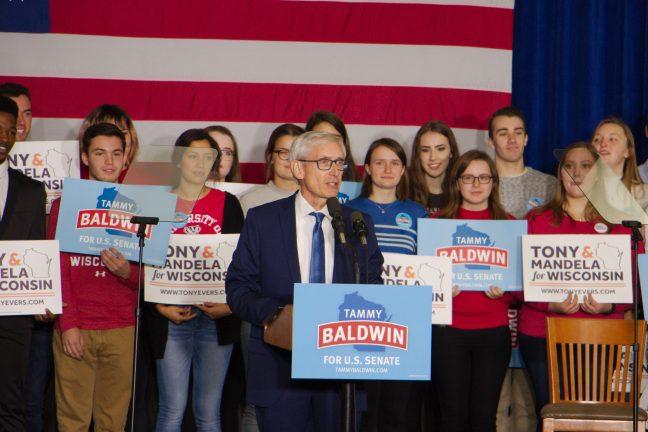A recent report from the Wisconsin Institute for Law and Liberty found that roughly one-third of open records requests to Governor Tony Evers’ office were unfilled or recorded improperly.
The report found the Evers administration lagged behind early in its ability to respond efficiently to record requests, as mandated by the Wisconsin Open Records Law.
The open records law, enacted in Wisconsin 37 years ago, ensures that the public has access to governmental records at all levels. While there are a handful of exceptions, by and large the state of Wisconsin has operated under the idea that each citizen is entitled to as much information as possible.
The report comes amid Evers’ recent move to take down a Gov. Scott Walker-era website, which helped gauge the efficiency of state officials’ responses to record requests, according to the Milwaukee Journal Sentinal.
Wisconsin Freedom of Information Council president Bill Lueders said the Evers administration announced it will not be following many executive orders enacted by Walker, many of which expedited the process of obtaining records from government officials.
Dee Hall, the Wisconsin Center for Investigative Journalism co-founder, believes this start is not necessarily indicative of Evers’ future performance.
“I’ve been taking a wait-and-see approach … obviously WILL has its own opinions, but it felt very point-and-time to me. I think we have to give the administration more time,” Hall said.
The report was released in September, roughly eight months after Evers took office.
Despite Evers’ only having been governor for less than a year, Lueders has been made anxious by what he sees as fundamental regressions from the executive orders enacted by Walker.
“I don’t think it’s a crisis … I haven’t noticed a drastic difference in compliance between the Evers and Walker administrations,” Lueders said. “What troubles me was a comment by Melissa Baldauff who essentially said Evers’ administration will follow the law and the Department of Justice, not executive orders of the past governor. What troubles me is that the entire point of the executive orders by Walker was to help state agencies file records more efficiently.”
Baldauff, an Evers spokeswoman, made these statements soon after the report’s release, according to The Capital Times.
There are likely a number of causes for the level of Evers’ response efficiency, including simply the volume of requests made, Lueders said.
The report found that a majority of agencies are still following the expedited timelines established by Walker’s executive orders, according to The Capital Times. Additionally, Baldauff claimed Evers’ office fulfilled 195 of 209 record requests received from Jan. 7 to Sept. 6.
As stated in the Capital Times, in spite of finding an inclination towards compliance within the Evers administration, the report stated the Department of Children and Families, and the Department of Transportation failed to respond to records requests.
In a report of Mandela Barnes, the Lieutenant Governor, WILL found that it took staffers an average of 22 business days to respond to requests, despite his office receiving less than 15 records requests over six months.
While such response times may cause some to view the administration negatively, Evers has not violated any laws or committed a punishable offense, Hall said.
“There is no official deadline for producing records. The law says that agencies should respond within 10 business days, or as soon as practicable and without delay,” Hall said.
Lueders says he is not concerned by the Evers administration, but hopes for a definitive process to increase cooperation within individual agencies.
As Evers looks ahead to his second year as governor, Lueders acknowledged the “fine” work he has done in office thus far.
“They should find a way to improve state agency compliance,” Lueders said. “They need to constantly try to do a better job. That doesn’t mean they’re doing a bad job—they’re doing fine—but you can always do better,”


